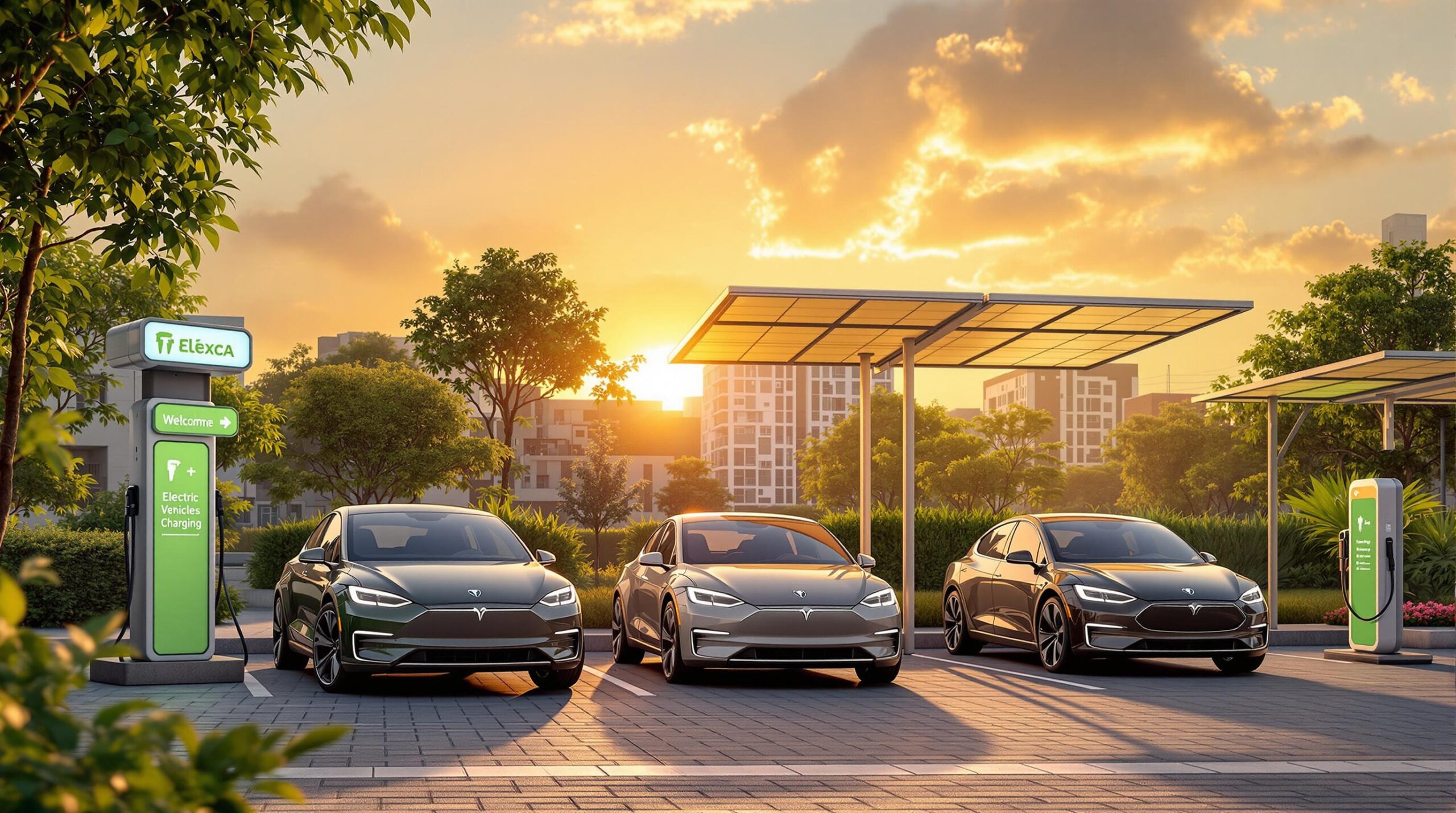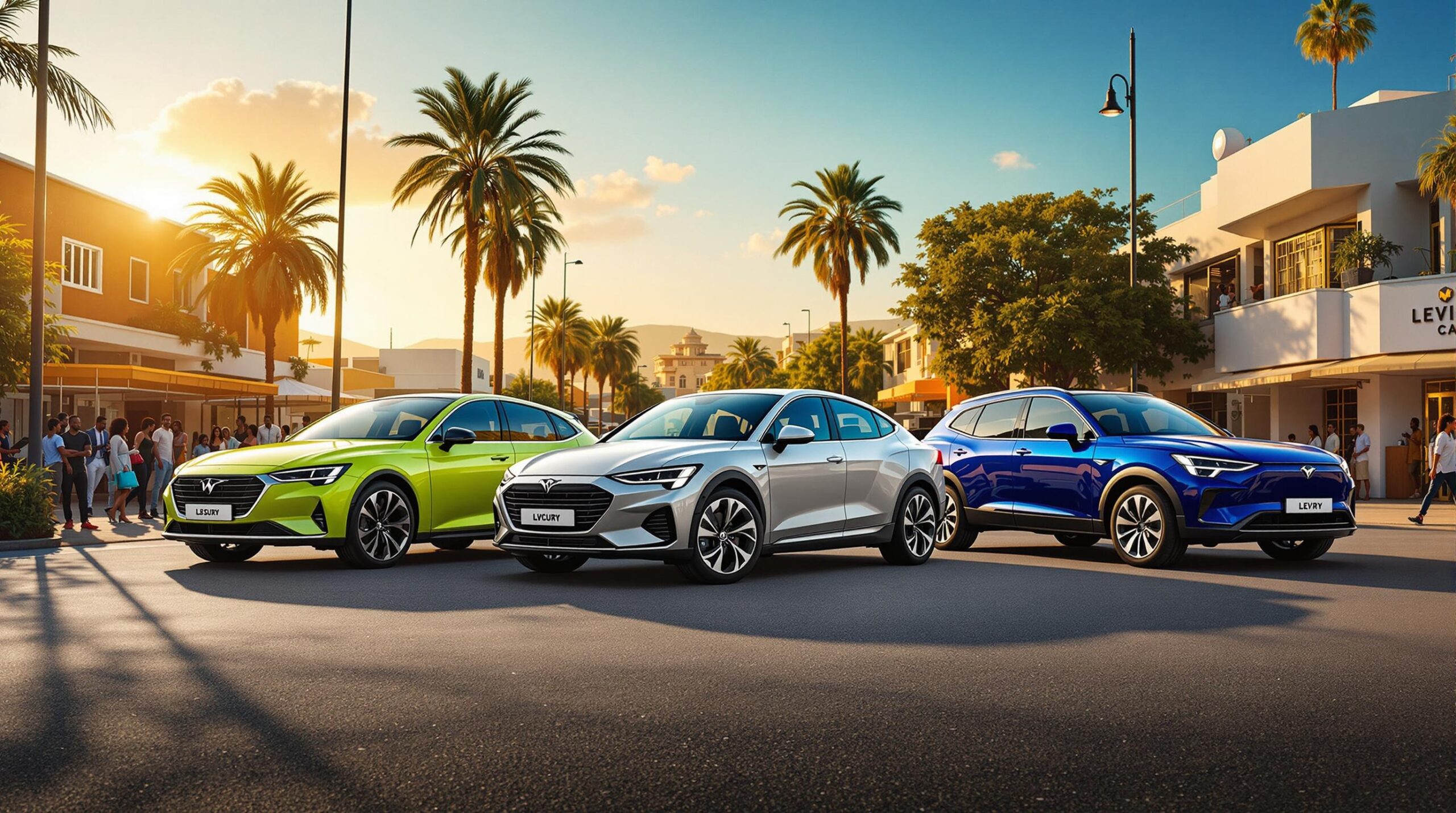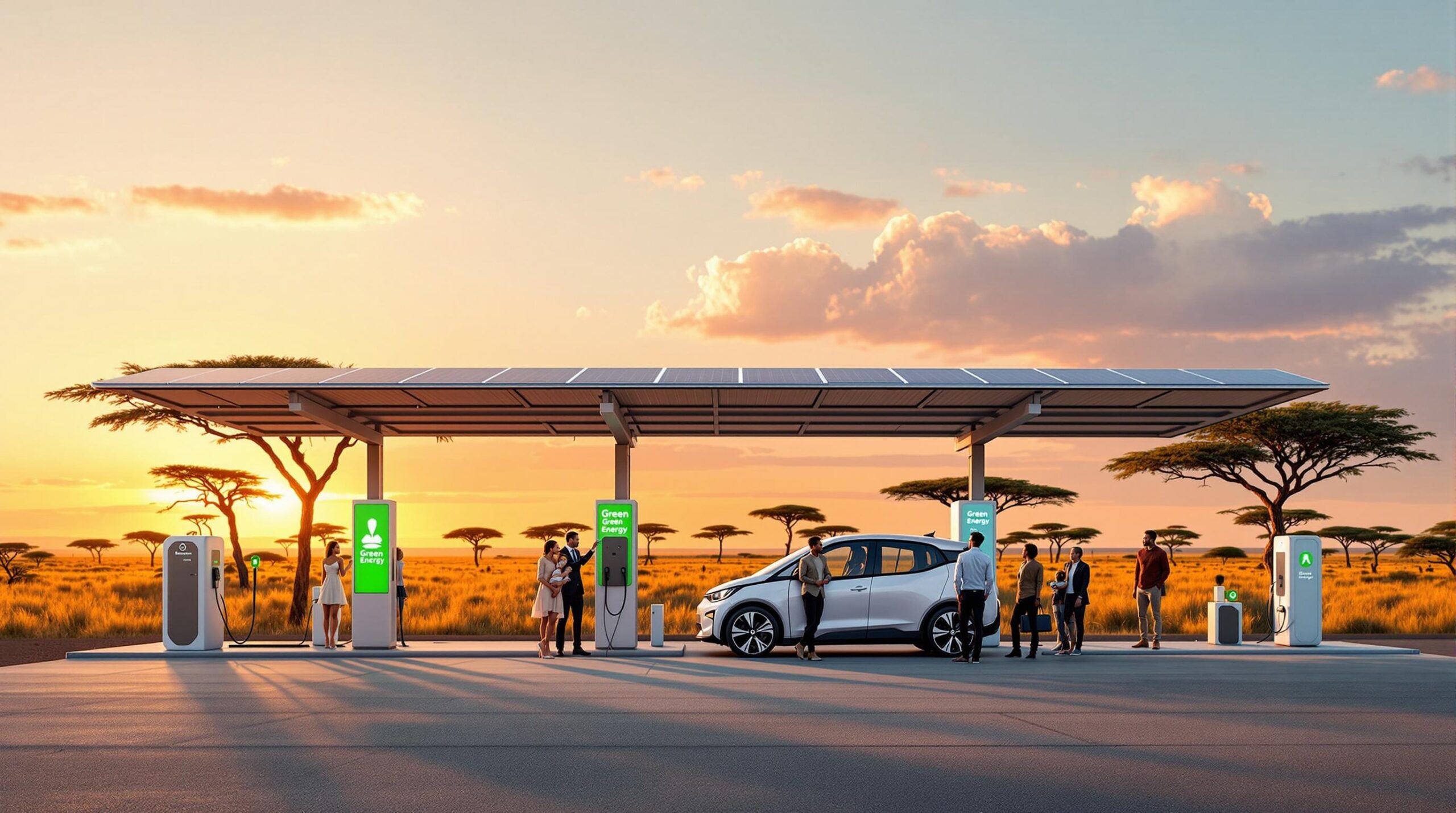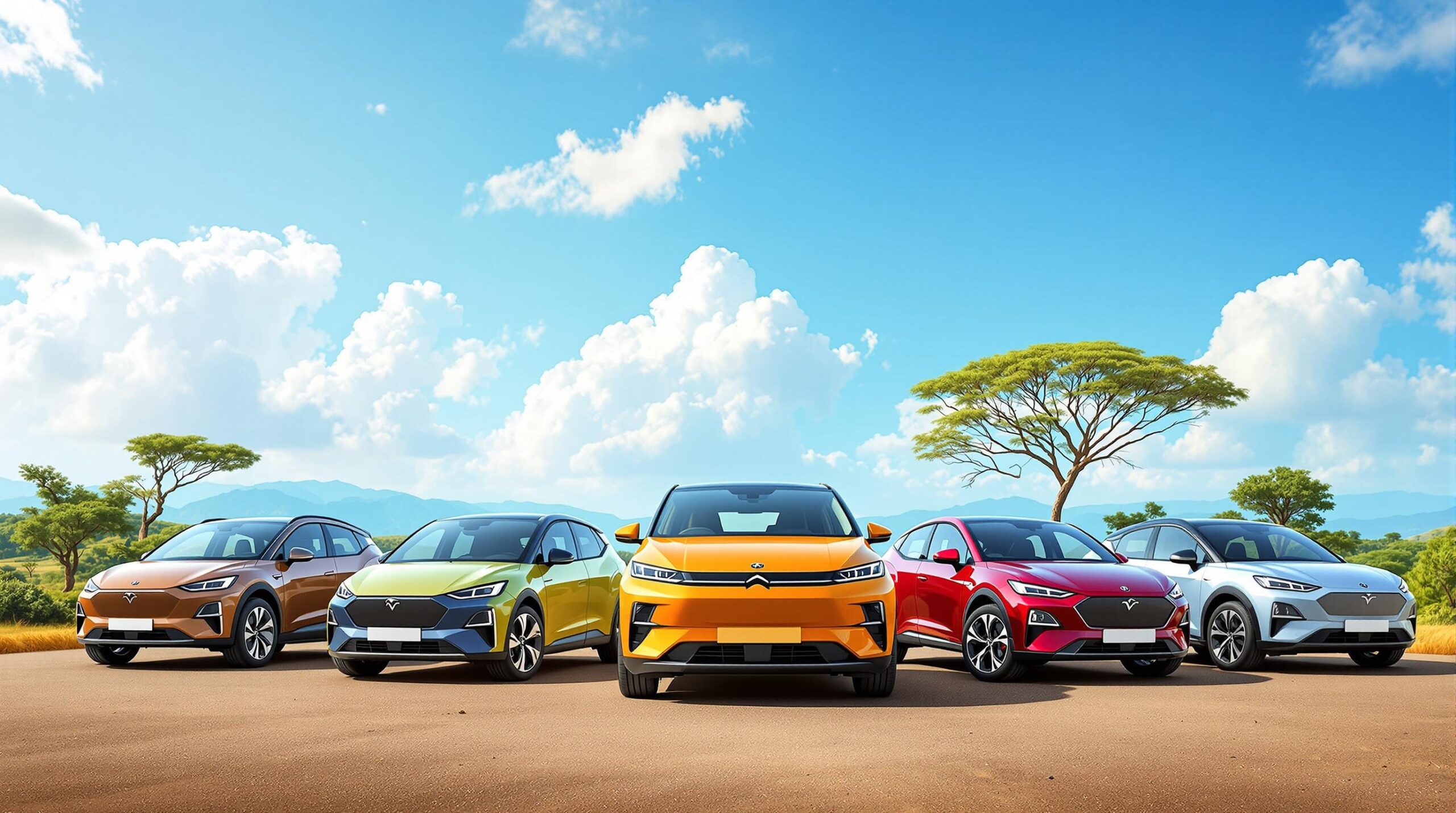
Think EVs don’t work in Africa? Think again.
Electric vehicles (EVs) are proving to be practical in Africa, despite common myths. Here’s how:
- Roads & Weather: EVs like BasiGo buses in Kenya handle rough roads and high temperatures with ease.
- Charging Infrastructure: Fast chargers, like Societe Petroliere’s 45-minute supercharger, and solar options are expanding across cities like Kigali and Johannesburg.
- Cost Concerns: While upfront costs are higher, EVs save up to 70% on fuel and 50% on maintenance over time.
- Policy Support: Countries like Rwanda and Kenya are removing barriers with tax exemptions and import restrictions on older gas vehicles.
Bottom line: EVs are becoming affordable, reliable, and accessible across Africa, busting myths and paving the way for a cleaner future.
Electric vehicle adoption challenges
Myth 1: EVs Can’t Handle African Roads
There’s a common belief that electric vehicles (EVs) aren’t suited for African roads, but field tests show they can handle a range of terrains and weather conditions with ease.
EVs on Different Road Types
Contrary to the myth, tests have shown EVs perform well on Africa’s roads. For instance, BasiGo’s electric buses in Kenya have proven reliable on both urban streets and rural routes, thanks to their straightforward drivetrain design. Meanwhile, the Enyaq’s cross-continental journey demonstrated that with smart route planning and solar charging, EVs can navigate even the toughest conditions.
EVs in African Weather
High temperatures? No problem. EVs are equipped with advanced thermal management systems to stay efficient in Africa’s heat. In East Africa, Societe Petroliere’s fast-charging stations address heat-related charging issues, while eWAKA’s electric motorbikes handle everything from coastal humidity to inland heat, all while requiring less maintenance than traditional combustion vehicles.
Myth 2: Not Enough Charging Stations
Africa’s charging network is growing rapidly, fueled by creative solutions and significant investments. Let’s explore the current networks, alternative charging methods, and upcoming projects.
Existing Charging Networks
Charging stations are becoming more common, especially in urban areas. For example, Societe Petroliere’s EV Supercharger in East Africa can fully charge a vehicle in just 45 minutes. Cities like Kigali and Johannesburg now have extensive charging options, making electric vehicles (EVs) more practical for everyday use.
| City | Charging Options | Key Features |
|---|---|---|
| Kigali | Fast Chargers | 45-minute full charge |
| Johannesburg | Urban Network | High-density coverage |
Alternative Charging Methods
Public charging isn’t the only option. Home charging can help lower costs, while solar charging has shown great potential. One notable example is a 24,000-mile journey across Africa powered entirely by solar energy.
New Charging Station Projects
The push to expand charging infrastructure is gaining momentum. Societe Petroliere is extending its supercharger network into Tanzania, and similar initiatives are underway in South Africa. These efforts are reducing range anxiety and making EVs a more realistic choice.
"The expansion of charging infrastructure in Africa is a critical component of the region’s transition to more sustainable transportation options."
sbb-itb-99e19e3
Myth 3: EVs Cost Too Much
While the upfront price of an EV might be higher, the overall cost of ownership is often much lower.
Comparing Costs: EVs vs. Gas Cars
EVs can save you a lot over time. With fewer moving parts and no need for oil changes, maintenance costs can drop by up to 50%. On top of that, EVs are far more efficient when it comes to fuel, cutting fuel expenses by up to 70%. These long-term savings help balance out the higher initial price tag.
| Cost Category | Electric Vehicle | Gas Vehicle |
|---|---|---|
| Maintenance | Around 50% lower costs | Higher regular maintenance |
| Fuel Efficiency | About 3.4 miles per kWh | Depends on the model |
| Long-term Savings | Up to 70% on fuel costs | Standard fuel costs |
Making EVs Affordable
Financing options are making EVs easier to afford. Platforms like EV24.africa provide flexible payment plans for both new and used EVs. Policies such as Rwanda’s removal of import taxes and innovative solutions from companies like eWAKA and BasiGo are also helping to lower costs. These options make EVs more accessible and set buyers up for long-term savings.
Long-Term Savings with EVs
Beyond financing, the ongoing savings from owning an EV make them a smart financial choice. Lower maintenance needs and cheaper charging costs ensure that operating expenses stay low. For many African buyers, the combination of reduced fuel costs, minimal upkeep, and efficient charging makes EV ownership a cost-effective option in the long run.
Facts Support EVs in Africa
Dispelling Myths with Facts
Electric vehicles (EVs) are proving to be a practical choice across Africa, with increasing adoption and success stories. For instance, the rise in EV sales in South Africa highlights growing consumer trust. Real-world experiences also show that with proper adjustments, EVs can handle the continent’s diverse road conditions.
| Myth | Reality |
|---|---|
| Poor Infrastructure | East Africa now boasts its fastest EV Supercharger, installed by Societe Petroliere. |
| Can’t Handle Roads | With modifications, EVs can navigate challenging terrains effectively. |
| Too Expensive | EVs often come with much lower operating costs compared to gas-powered cars. |
| Limited Range | Solar charging and other alternatives make remote travel possible. |
These realities are helping to clear up misunderstandings and encourage broader EV adoption.
Practical Steps for Buyers
If you’re considering an EV, careful planning and local knowledge can make the transition smoother. Here’s how to get started:
- Look into nearby charging infrastructure.
- Compare electricity rates with fuel costs to estimate potential savings.
- Check for government incentives like tax breaks or subsidies in your area.
- Explore options for both new and certified pre-owned EVs through trusted dealers.
Platforms like EV24.africa offer a range of electric vehicles to suit various budgets. Companies such as eWAKA also provide affordable alternatives, including electric motorbikes and cargo bicycles designed for local needs.
With expanding charging networks and creative solutions like solar charging, now is a great time to consider an EV. By doing your homework and planning ahead, you can confidently join the growing number of EV owners while supporting a cleaner, more efficient future.
FAQs
Here are answers to common questions that clear up misconceptions about using electric vehicles (EVs) in Africa.
Can electric cars be used in Africa?
Absolutely. Electric vehicles have proven reliable across Africa through real-world applications. For instance, BasiGo in Kenya operates electric matatus, supported by dedicated charging stations to address infrastructure challenges.
| Country | EV Initiatives |
|---|---|
| Kenya | Electric mobility programs |
| Rwanda | EV-friendly incentive policies |
| Morocco | Expanding charging networks |
| South Africa | Growing EV market participation |
Governments across the continent are rolling out policies to encourage EV adoption. Charging infrastructure is steadily growing, with options like superchargers and solar-powered stations catering to a variety of needs.
Companies such as eWAKA are making electric mobility more accessible by offering electric motorbikes and cargo bicycles, which suit different budgets and transportation needs.
Additionally, EV manufacturers are tailoring vehicles for African conditions. Features like reinforced suspensions and off-road tires ensure they can handle diverse terrains. Coupled with lower running costs and reduced maintenance, EVs are becoming a practical option for African drivers.




